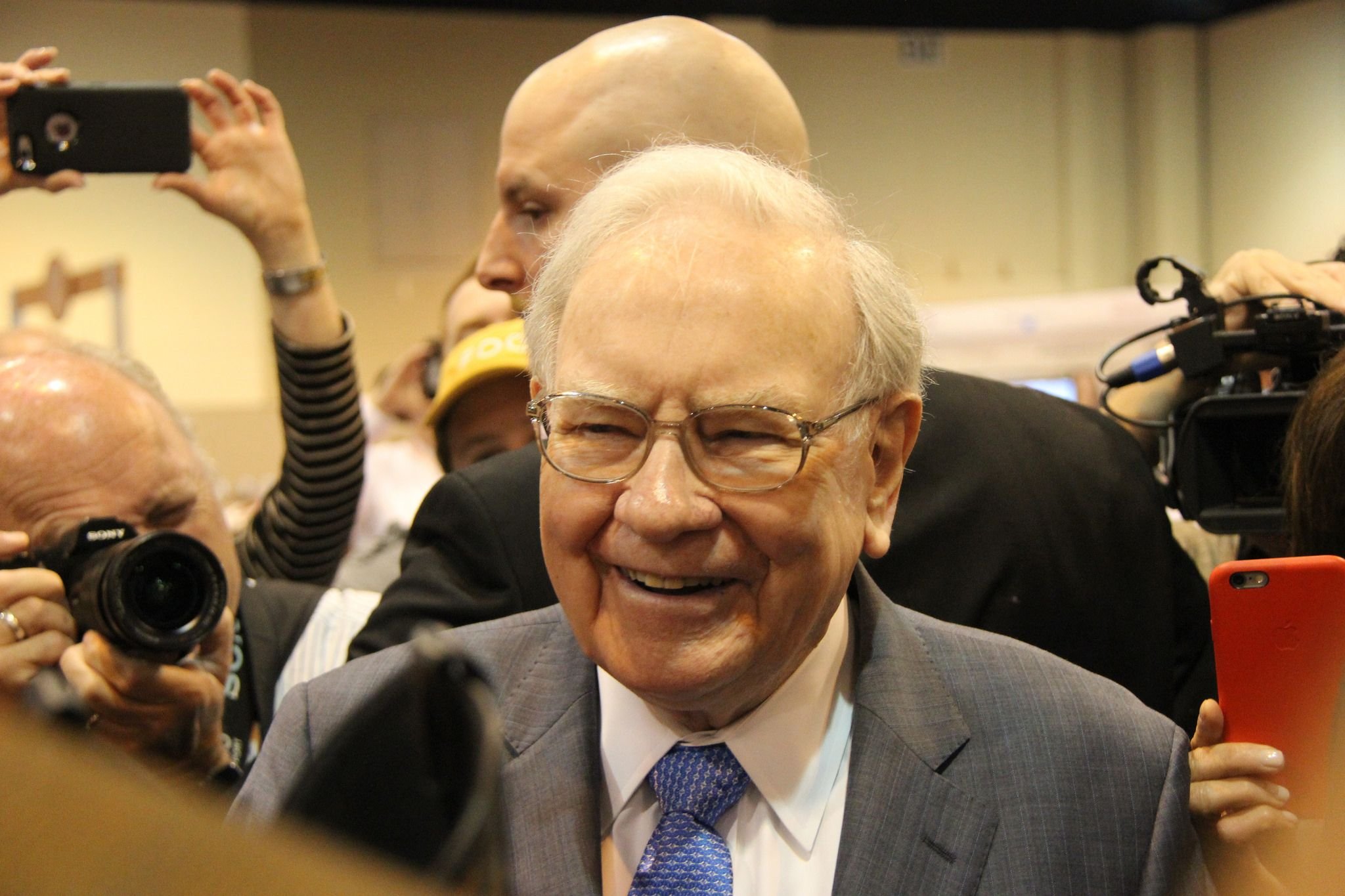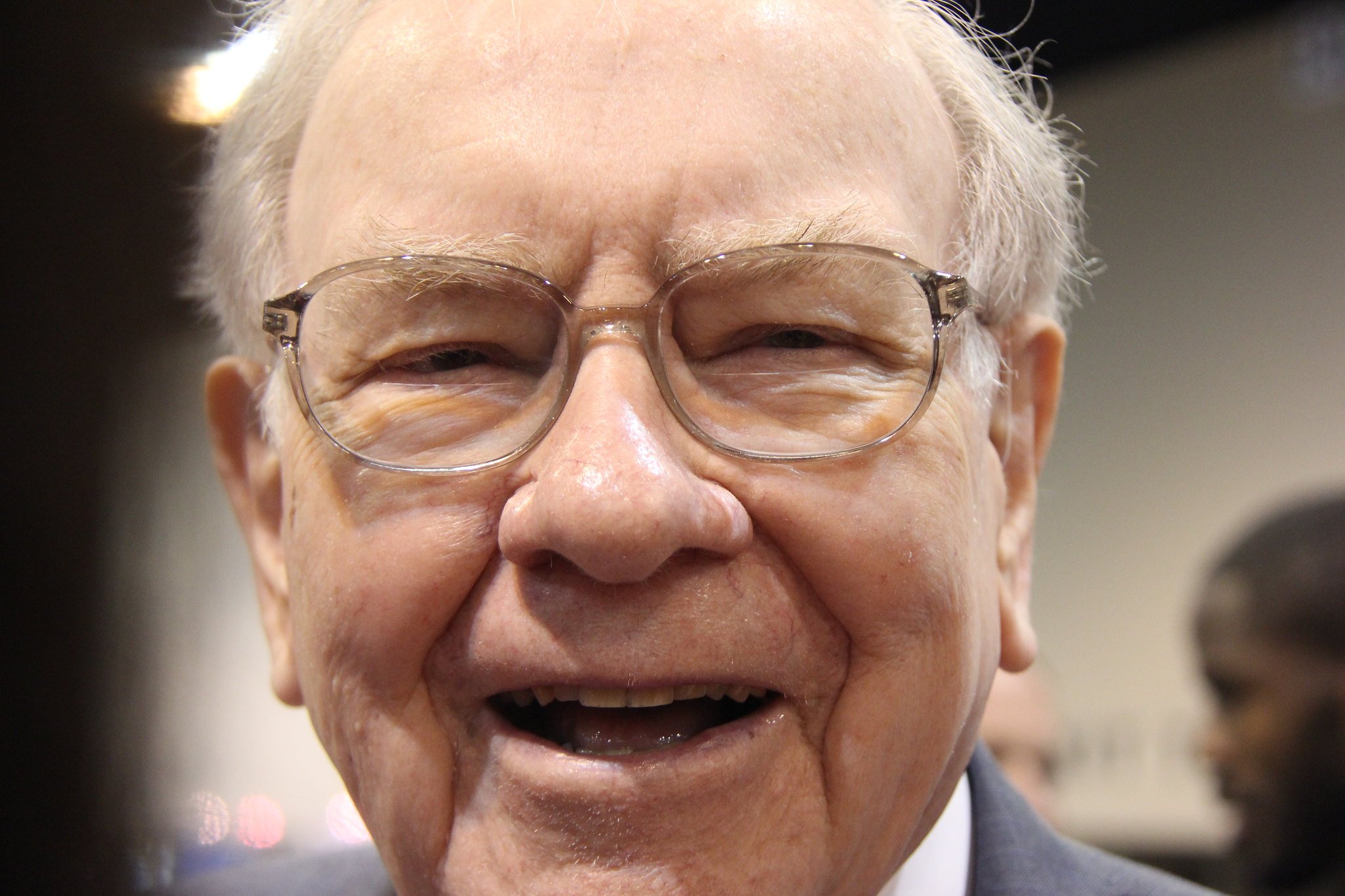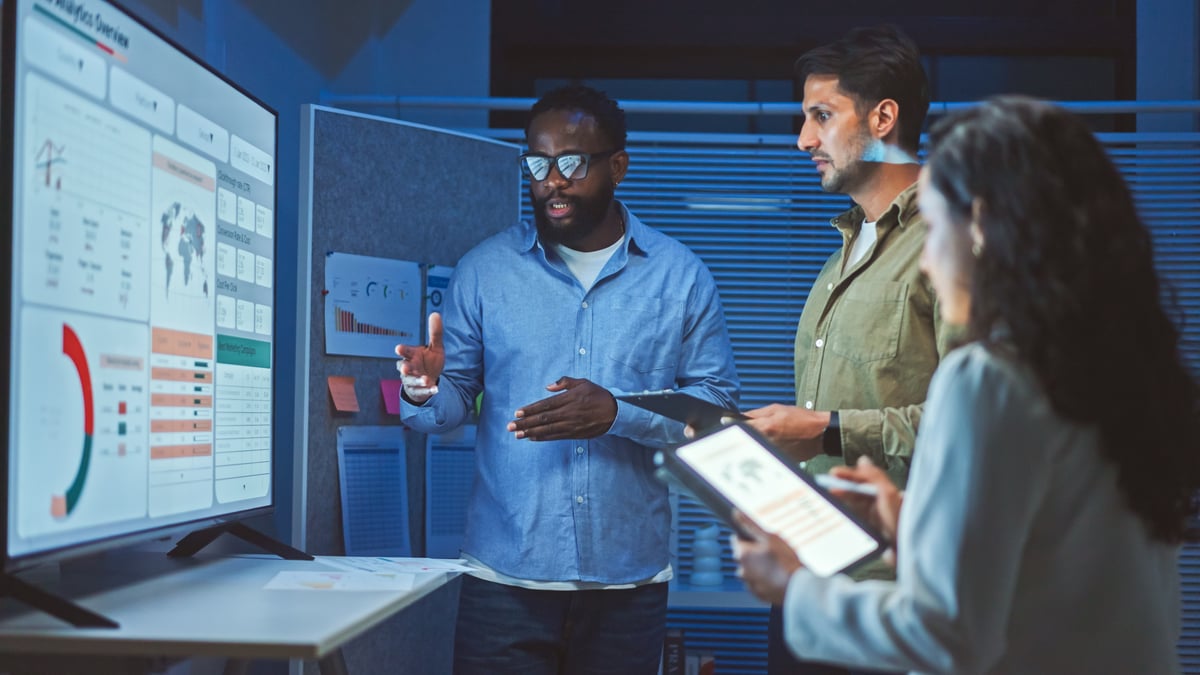Don't expect Berkshire Hathaway (BRK.A 0.08%) (BRK.B 0.21%) to skip a beat when Warren Buffett hands the reins over to Greg Abel as CEO next year. Buffett even told Berkshire shareholders at their annual meeting earlier this month that the company's prospects "will be better under Greg's management than mine."
However, that doesn't mean that Berkshire couldn't still face a bumpy road ahead. Tesla (TSLA 1.02%) and Google parent Alphabet's (GOOG 0.12%) (GOOGL 0.16%) Waymo unit are poised to poke Buffett's golden goose.

Image source: Getty Images.
Buffett's golden goose
What is Buffett's golden goose? It's Berkshire Hathaway's insurance business -- especially GEICO. Berkshire first initiated a position in GEICO in 1976 and wholly acquired the company two decades later. GEICO now ranks as the third-largest auto insurance company in the U.S., with a market share of around 12.3%.
In his latest letter to shareholders, Buffett said that property and casualty (P&C) "continues to be Berkshire's core business." More than 10% of the conglomerate's total earnings last year stemmed from insurance premiums. Investment income from Berkshire's insurance business generated another 15% of total earnings.
Buffett said at the recent annual shareholder meeting that GEICO's auto insurance "is by far the largest item in the property & casualty insurance business. It's huge." Ajit Jain, who heads Berkshire's insurance operations, added that "in addition to underwriting profit, GEICO provides $29 billion of float."
GEICO has been a remarkably stable business. Buffett noted: "The interesting thing about auto insurance is that we're selling the same product as in 1936 when the company was started. We're just being more sophisticated about pricing it." However, that stability could soon be rocked.
A coming robotaxi revolution
During the shareholder meeting, Buffett and Jain were asked how autonomous vehicles might disrupt GEICO's auto insurance business. Jain responded, "There's no question that insurance for automobiles is going to change dramatically once self-driving cars become a reality." He's right, except for the future tense: Self-driving cars are already a reality.
Alphabet's business unit Waymo operates 24/7 autonomous ride-hailing -- also known as robotaxi -- services in Phoenix, San Francisco, Los Angeles, and Austin. It plans to soon launch in Atlanta and Miami. Waymo doesn't have a spotless safety record, but it's nonetheless impressive. In over 57.6 million miles of driving, Waymo's robotaxis had 92% fewer crashes with injuries to pedestrians and 82% fewer crashes with injuries to cyclists and motorcyclists than human drivers did.
Tesla will soon jump into the robotaxi market. The electric-vehicle maker hopes to introduce its Cybercabs in Austin in June. CEO Elon Musk said on Tesla's first-quarter earnings call that most Tesla EVs are capable of being robotaxis. He stated, "Once we make it work in a few cities, we can basically make in work in all cities."
Sure, both Tesla and Waymo have run into some speed bumps. Waymo recently announced it's recalling 1,200 vehicles to address collision risks. The National Highway Traffic Safety Administration's Office of Defects Investigation is also investigating Tesla's fully autonomous driving technology in advance of its robotaxi service debut. However, it's almost certainly a question of when, not if, robotaxis become much more prevalent throughout the U.S.
How robotaxis could impact Berkshire Hathaway
Jain's comments at Berkshire's shareholder meeting centered on the safety of self-driving cars. He believes that "the number of accidents will drop dramatically because of automatic driving." On the other hand, Jain thinks that repair costs will jump because of the expensive technology in autonomous vehicles.
GEICO is already preparing for this shift. Jain mentioned that the Berkshire subsidiary is exploring options to focus less on insurance for operator errors, and more on insurance for product errors and omissions in the design and manufacturing of self-driving vehicles.

NYSE: BRK.B
Key Data Points
But GEICO could face a much more consequential change from robotaxis. Cathie Wood and her team at the investment management firm Ark Invest think that robotaxis "could be the most impactful innovation in history." In particular, they expect the technology will cause auto sales to decline by roughly 50% in North America and Europe.
If those projections are anywhere close to being right, Buffett's golden goose could be headed for a sharp revenue decline with fewer auto insurance policies sold. At the same time, errors and omissions insurance policies typically cost much less than auto insurance. GEICO might be hit by a robotaxi double whammy.
Is Berkshire Hathaway still a safe bet?
Does the coming robotaxi revolution threaten Berkshire Hathaway's status as a safe bet for long-term investors? I don't think so.
Not everyone agrees with Ark Invest's predictions about the robotaxi market. For example, Lux Research thinks that robotaxis will replace human-driven taxis and ride-hailing services. However, the research and advisory company expects that the costs of robotaxis will be higher than personal car ownership. Lux also believes that "car ownership as a status symbol" will be an obstacle to robotaxis disrupting the auto market too much.
It's also important to remember how diversified Berkshire Hathaway is. Although auto insurance is a key part of the conglomerate's business, Berkshire generates a lot more revenue and profits from its other businesses than it does from GEICO. That diversification could increase with Abel as CEO.
The bottom line is that Tesla and Waymo (along with other robotaxi leaders) will likely cause GEICO to change its business model in major ways over the next decade. But I don't expect Buffett's golden goose to be cooked anytime soon. Berkshire Hathaway should remain a safe long-term pick.









